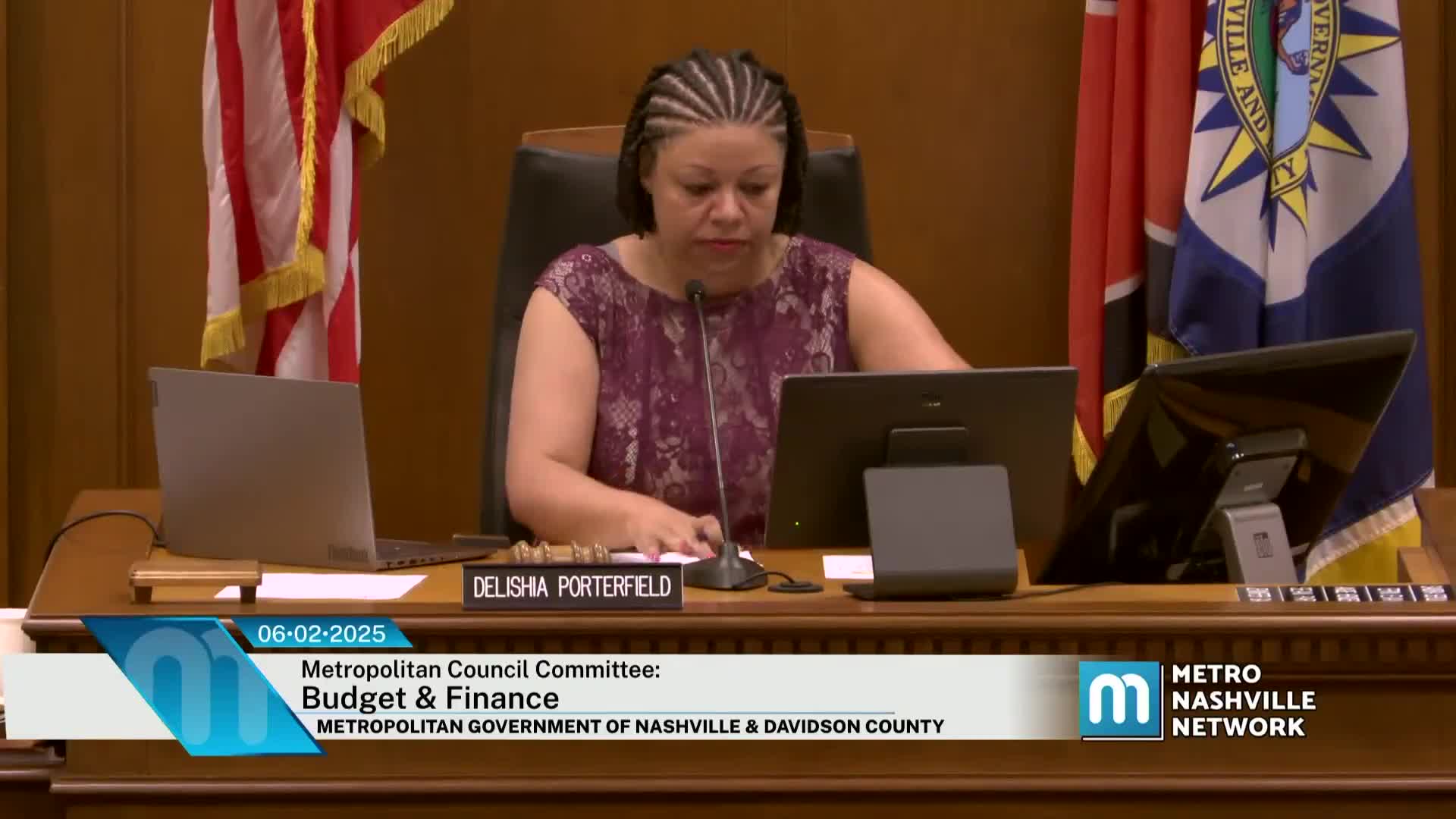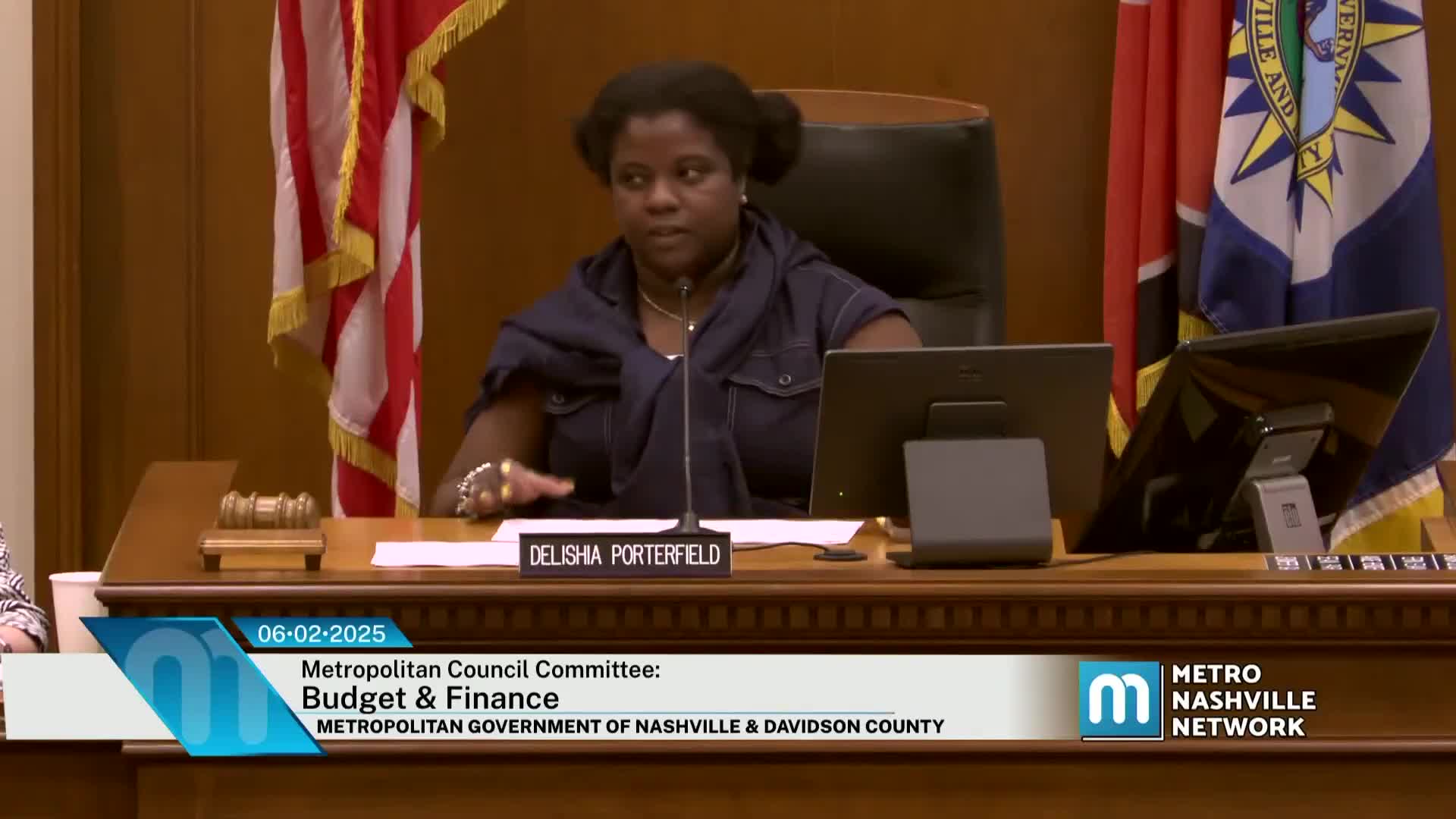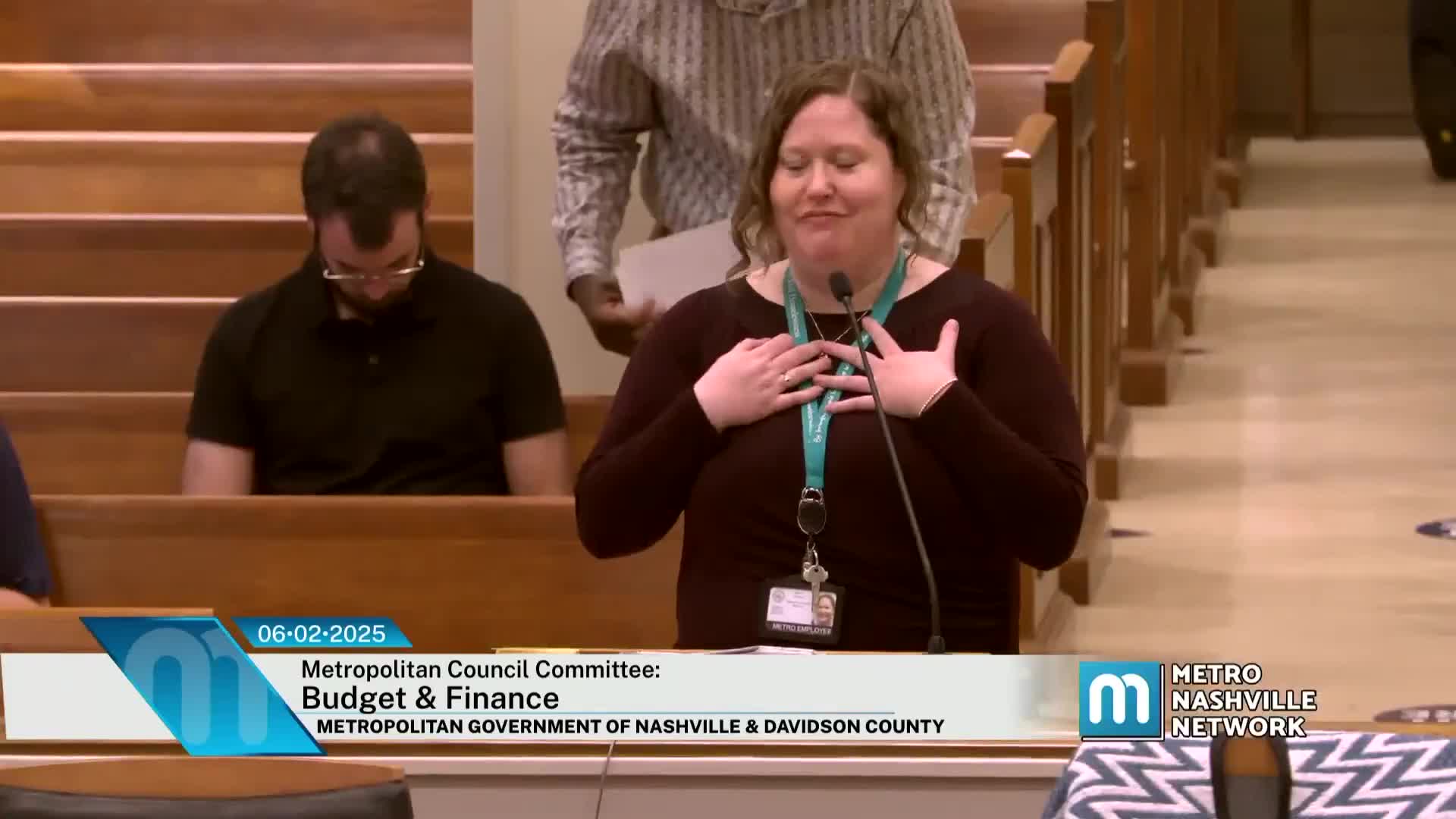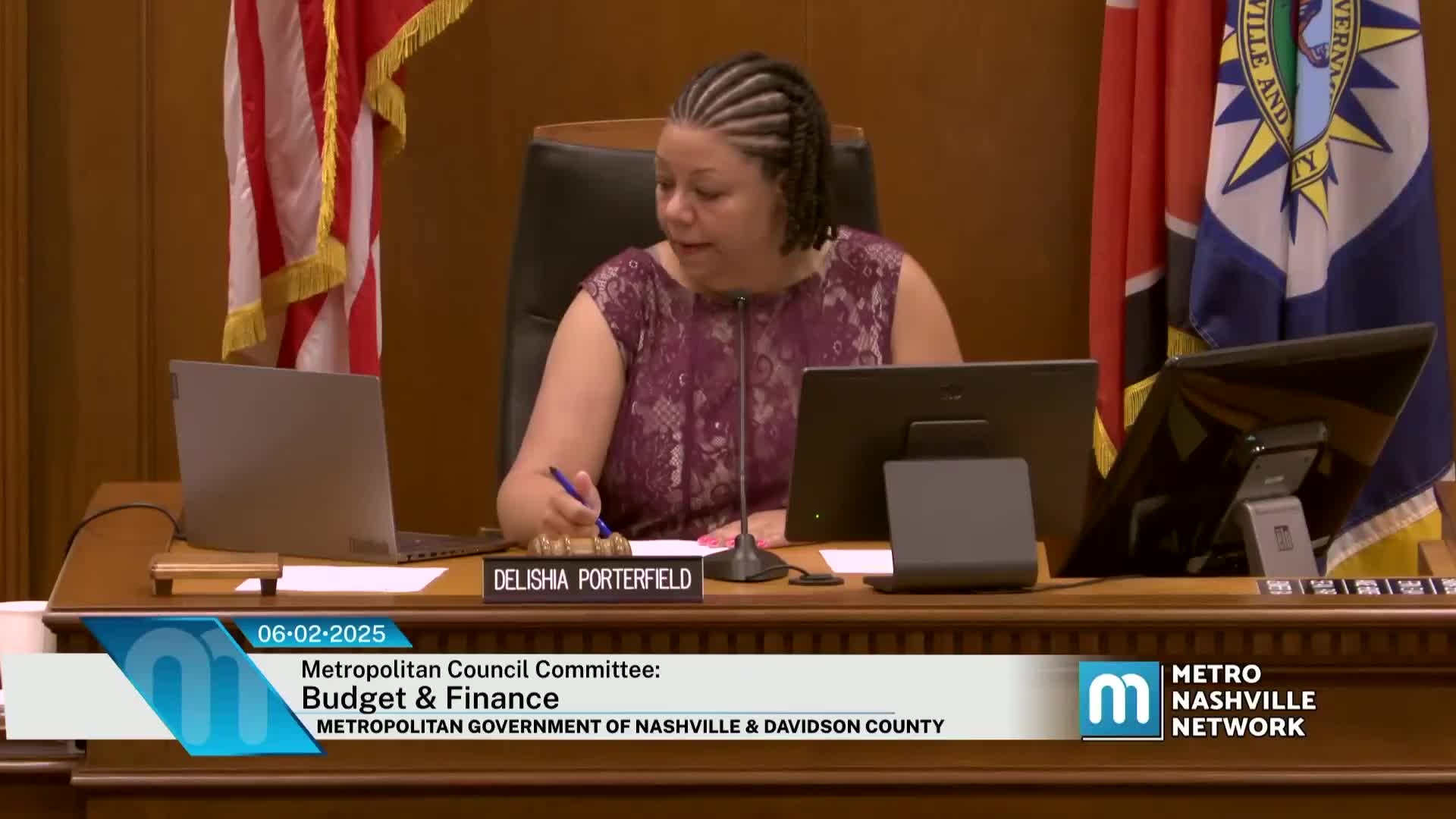Article not found
This article is no longer available. But don't worry—we've gathered other articles that discuss the same topic.

Metro committee defers contested 15-year pay-plan restructure after extended debate

Council committee starts process to expand downtown business improvement district amid outreach, homelessness questions

Council accepts grant to fund veteran homelessness system lead position

